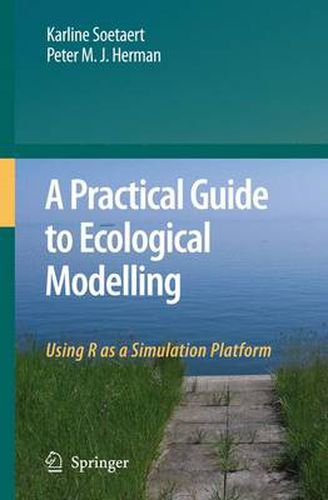Readings Newsletter
Become a Readings Member to make your shopping experience even easier.
Sign in or sign up for free!
You’re not far away from qualifying for FREE standard shipping within Australia
You’ve qualified for FREE standard shipping within Australia
The cart is loading…






This title is printed to order. This book may have been self-published. If so, we cannot guarantee the quality of the content. In the main most books will have gone through the editing process however some may not. We therefore suggest that you be aware of this before ordering this book. If in doubt check either the author or publisher’s details as we are unable to accept any returns unless they are faulty. Please contact us if you have any questions.
Mathematical modelling is an essential tool in present-day ecological research. Yet for many ecologists it is still problematic to apply modelling in their research. In our experience, the major problem is at the conceptual level: proper understanding of what a model is, how ecological relations can be translated consistently into mathematical equations, how models are solved, steady states calculated and interpreted. Many textbooks jump over these conceptual hurdles to dive into detailed formulations or the mathematics of solution. This book attempts to fill that gap. It introduces essential concepts for mathematical modelling, explains the mathematics behind the methods, and helps readers to implement models and obtain hands-on experience. Throughout the book, emphasis is laid on how to translate ecological questions into interpretable models in a practical way.
The book aims to be an introductory textbook at the undergraduate-graduate level, but will also be useful to seduce experienced ecologists into the world of modelling. The range of ecological models treated is wide, from Lotka-Volterra type of principle-seeking models to environmental or ecosystem models, and including matrix models, lattice models and sequential decision models. All chapters contain a concise introduction into the theory, worked-out examples and exercises. All examples are implemented in the open-source package R, thus taking away problems of software availability for use of the book. All code used in the book is available on a dedicated website.
$9.00 standard shipping within Australia
FREE standard shipping within Australia for orders over $100.00
Express & International shipping calculated at checkout
This title is printed to order. This book may have been self-published. If so, we cannot guarantee the quality of the content. In the main most books will have gone through the editing process however some may not. We therefore suggest that you be aware of this before ordering this book. If in doubt check either the author or publisher’s details as we are unable to accept any returns unless they are faulty. Please contact us if you have any questions.
Mathematical modelling is an essential tool in present-day ecological research. Yet for many ecologists it is still problematic to apply modelling in their research. In our experience, the major problem is at the conceptual level: proper understanding of what a model is, how ecological relations can be translated consistently into mathematical equations, how models are solved, steady states calculated and interpreted. Many textbooks jump over these conceptual hurdles to dive into detailed formulations or the mathematics of solution. This book attempts to fill that gap. It introduces essential concepts for mathematical modelling, explains the mathematics behind the methods, and helps readers to implement models and obtain hands-on experience. Throughout the book, emphasis is laid on how to translate ecological questions into interpretable models in a practical way.
The book aims to be an introductory textbook at the undergraduate-graduate level, but will also be useful to seduce experienced ecologists into the world of modelling. The range of ecological models treated is wide, from Lotka-Volterra type of principle-seeking models to environmental or ecosystem models, and including matrix models, lattice models and sequential decision models. All chapters contain a concise introduction into the theory, worked-out examples and exercises. All examples are implemented in the open-source package R, thus taking away problems of software availability for use of the book. All code used in the book is available on a dedicated website.